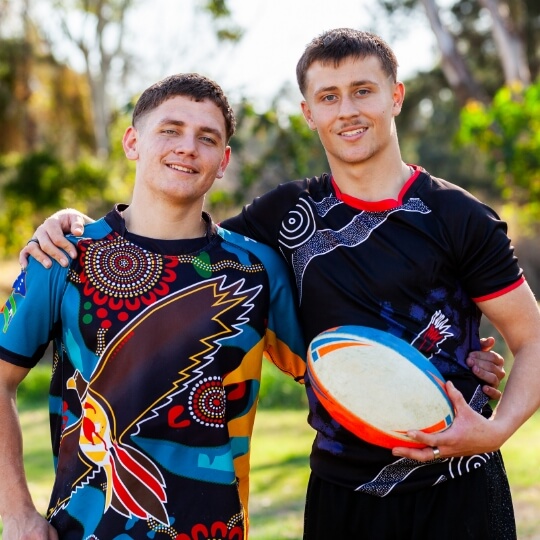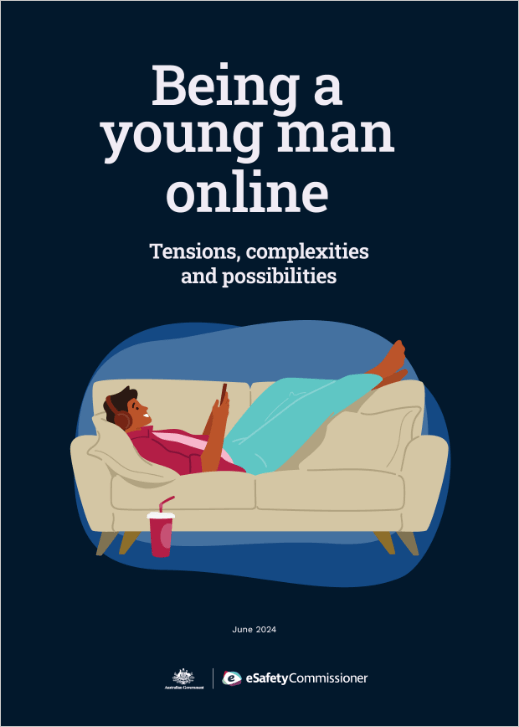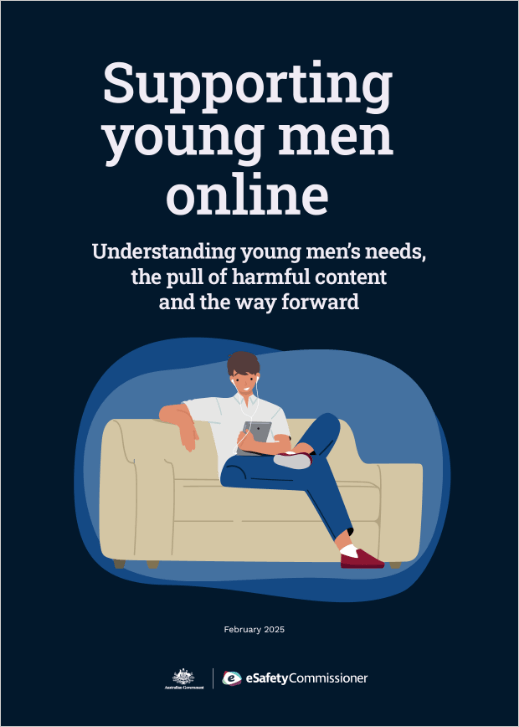Young men online

eSafety's young men online research series explores their experiences and the ways that they can be supported online to develop healthy and positive masculinities.
Part 1: 'Being a young man online: Tensions, complexities and possibilities'
This part of the project shares young men’s accounts of being online. The research was done by eSafety in 2023 in collaboration with Deakin University and Queensland University of Technology and published June 2024.
Part 1 examines the online experiences of young men in Australia aged 16 to 21 years old. It’s based on the findings from a qualitative study involving more than 100 young men. Based on focus groups and in-depth interviews, it explores in their own words what influences, motivates, shapes and informs their online experiences as young men.
Part 2: 'Supporting young men online: Understanding young men’s needs, the pull of harmful content and the way forward'
Part 2 of the project (February 2025), examines the broader context of young men’s lives and maps opportunities for supporting young men to have safe, positive online experiences.
Part 2 outlines eSafety’s role in supporting young men to have positive and healthy online experiences related to manhood and masculinities. To do this, eSafety consulted on the topic of positive and healthy masculinities and manhood with a range of expert practitioners who work with young men.
Summary of key findings
The discussions and stories of young men in Part 1 reveal that when they describe their online experiences there are complex tensions between freedom and anxiety, intimacy and caution, and connection and harm. The young men we spoke to were grappling with what it means to be a man in the digital age – sometimes conforming with harmful beliefs about manhood and masculinity, and at other times rejecting them.
In Part 2, expert practitioners validated and extended the findings in Part 1, as well as providing guidance for eSafety’s role and next steps in supporting young men online.
Key findings – based on the experiences of the young men (Part 1) and practitioners (Part 2) involved:
- Being online can be positive for young men, allowing them to express themselves, connect socially and develop their critical thinking skills.
- Young men are interested in learning how to become good, kind men, and can be empathetic and think critically.
- Young men feel defensive, disenfranchised, uncertain, rebellious and lonely.
- Harmful online content, creators and communities can appeal to young men by meeting their needs for validation, guidance, edginess and belonging.
- Algorithms and recommender systems push harmful content onto young men.

